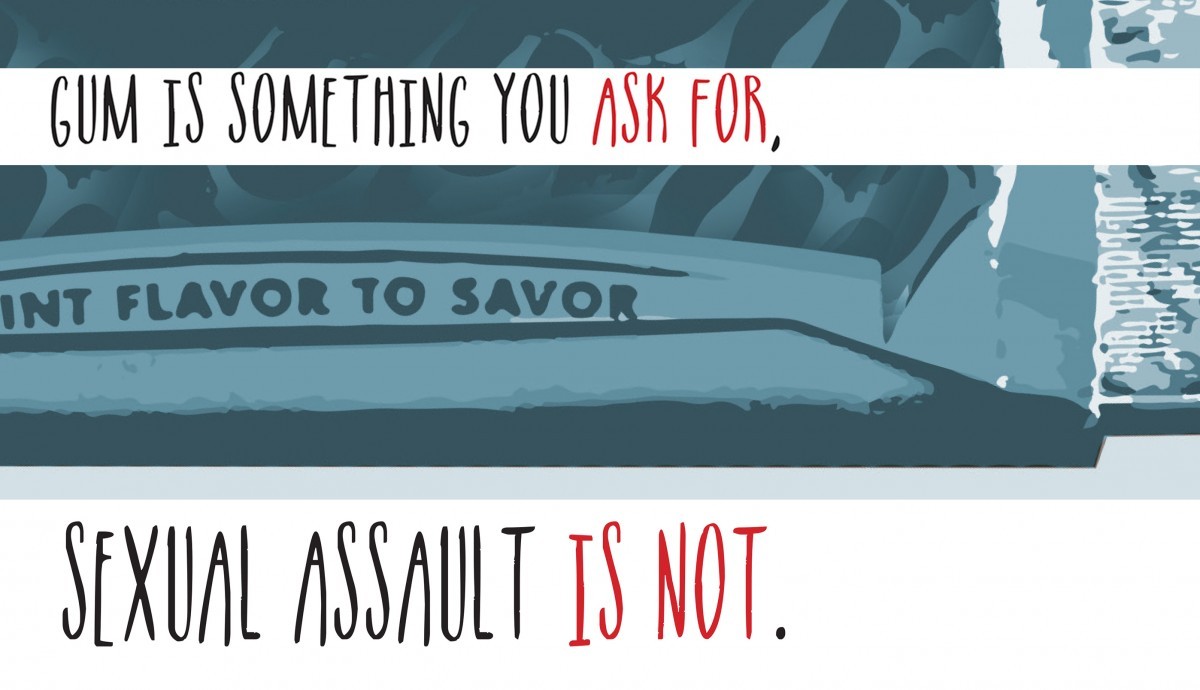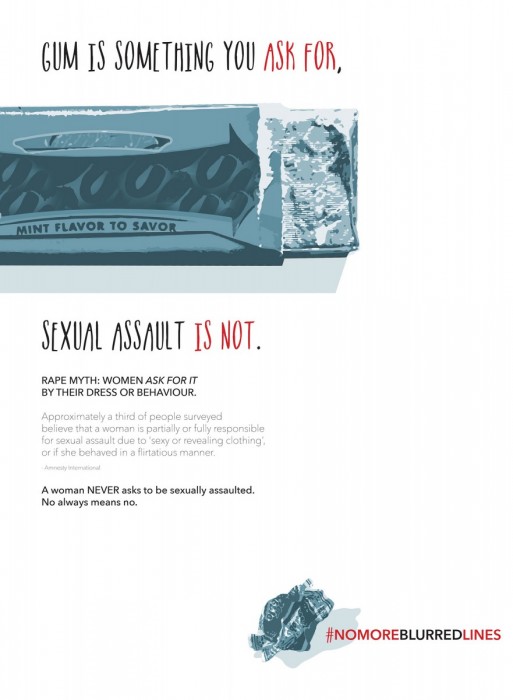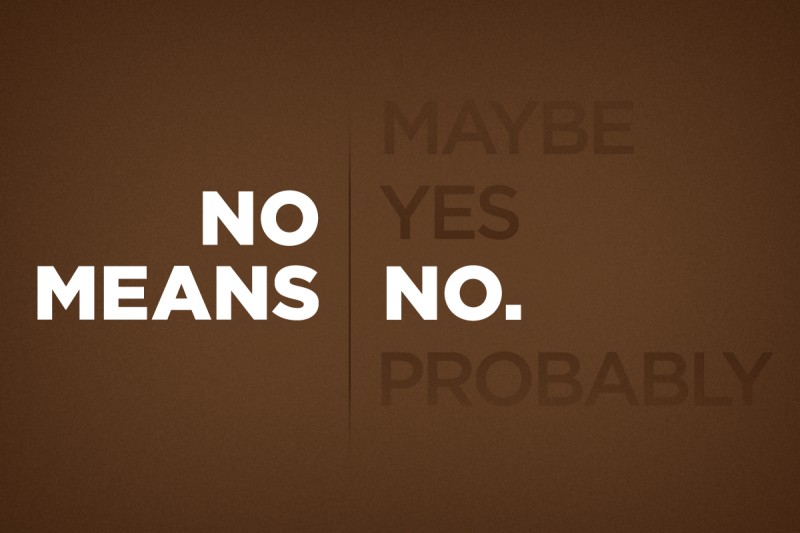
Student work.
‘Gum is something you ask for’
“Gum is something you ask for” is the response by some sociology students to the myth, “She asked for it.”
The students, who are enrolled in Mary-Anne Kandrack’s spring sociology course called Women, Crime and Social Justice, were asked to create Public Service Announcements that challenge “rape culture” — social attitudes that excuse and even condone rape.

Student work by Stephanie Prouse, Wanda Hounslow, Michael Whitlaw, Danielle Lavallee, and Sydney McNaughton.
Last fall, several Canadian universities attracted national attention because of inappropriate “frosh” week activities in which students — young women among them — were found to be shouting chants that suggested sexual violence is excusable, if not permissible.
Says Kandrack, “I know that I am not alone in my dismay over these events, given how much work has been done to ameliorate sexual violence around the world.”
Only a very small proportion of sexual assaults are reported to police, at least in part, she explains, “because these ideas are woven into the cultural fabric of society and discourage disclosure.” Rape culture includes many myths and misconceptions about sexual violence, something students discussed in the course.
Now the sociology professor is extending an invitation to the university community to attend the student presentations of PSAs that challenge the messages of rape culture. The presentations take place on the afternoon of Monday, June 23 from 2:00 to 3:30 PM in 303 Tier Building.
“I had goosebumps,” Kandrack says, in response to several of the student presentations.
The course has been around for about 15 years or more, notes Kandrack, who’s taught it at both the U of W and the U of M. “[The course] really represents the culmination of feminist criminology, in that it treats women as the subject matter — whereas historically, we’ve been kind of an afterthought in criminological research and theory,” she says. The course looks at women as offenders, the kinds of crimes women are victimized by and also provides an overview broader issues of women and the justice system.
Always looking for ways for students to take their knowledge beyond the classroom, Kandrack developed the assignment “in the spirit of innovation as an educator,” she says, and has been “incredibly impressed” with the results.
Students were given common rape culture myths about women and men and were asked to respond with their own PSAs. The myths included common beliefs or excuses such as, “Men have uncontrollable urges,” “Rape is impossible,” “Rape has no long lasting impact on the victim,” “No actually means yes,” and “She said yes to one, which is yes to them all.”
The myths included common beliefs or excuses such as, “Men have uncontrollable urges,” “Rape is impossible,” “Rape has no long lasting impact on the victim,” “No actually means yes,” and “She said yes to one, which is yes to them all.”
The responding messages created by the students are powerful. Kandrack describes one vivid video response by students that demonstrates the ongoing effects of rape culture; in the video, a woman is depicted going through her day with heavy barbells on her shoulders. “Their message is, ‘[Rape] has a long lasting impact — you carry it around with you,’” she says.
“I had goosebumps,” she says, in response to several of the presentations.
Kandrack plans to reprise the assignment in the future. An additional bonus of the exercise, according to Kandrack, is that students are given the in-classroom opportunity to cooperate and engage with their peers, something she believes doesn’t happen enough.
“Most group work, unfortunately, is not cooperative. What’s happening with these students is that most of them are completely engaged with each other,” she says.
“They also know that I won’t tolerate competitiveness; I told them that your job — even as an audience — is to help your peers to make what they’re doing better.” Before their final presentations, students had an opportunity to take into account peer feedback and sharpen their presentations.
Kandrack is pleased that the students have engaged so deeply with an such a relevant and urgent issue — in a way that has afforded them the ability to be proactive and educate others, she notes.
“These students have produced impressive messaging in a very short period of time that warrants an audience,” says Kandrack.
“We’ve taken a really ugly issue,” she says. “The positive energy [is] associated with the activity they’re doing.
“Perhaps their efforts will be taken up by organizations off-campus as well.”
Plan to attend a special presentation:
Monday, June 23, 2014
2:00 to 3:30 PM
Room 303 Tier Building
University of Manitoba
>> Click through to see some of the PSAs created by the students.
[rev_slider rapeculturePSAs]







